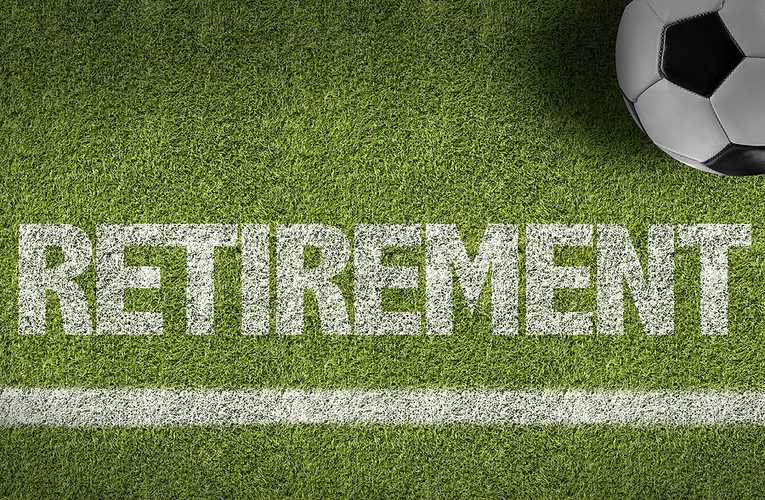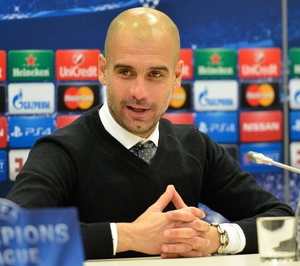
It’s no secret that the levels of money in the modern game are obscene when you’re looking at the top-flight of football. Yet what happens to footballers when they decide to hang up their boots?
Is it as simple as living of their fortune for the rest of their lives? Or is there more to it than that, with numerous avenues open to talented sports people with experience at the very top of the game?
Also, is there a common time when footballers decide to call it a day? Is it one size fits all, or is there some variation to the time limits imposed on a player’s career?
We make no outrageous promises, but hopefully we’ll make efforts to answer these questions and more in this section of the website.
When Do Footballers Retire?

There are two main reasons why footballers decide to call it a day: Injury and old age. Obviously there is no telling when the first one may strike. Football is, after all, a physical game and though few players ever set out to deliberately injure someone on the field of play accidents can most certainly happen.
Should a player pick up an injury that ends their career then the decision of when to walk away from the game is taken out of their hands by fate. Sometimes this can be an immediate thing that happens because of a bad tackle or some other issue on the field, whilst other times it can be a gradual wearing down of the player’s physical attributes that got them to the top of the game in the first place.
When it comes to age, this is another factor that varies from player to player. Goalkeepers typically last longer than outfield players because the pressure on them to keep fit enough to run around for ninety minutes is clearly less than their teammates. In fact, the age for players to consider retirement gets younger as you move through the field – although there are always exceptions to the rule, such as Kazuyoshi Miura, a forward who was still playing professionally well into his 50s!
Defenders don’t need to be as fit as midfielders who often need to be the fittest – and therefore the youngest – on the field of play. Attackers can get away with being a little bit slower and older if they’ve got a good eye for goal and are a natural finisher. Whilst midfielders need to move from one box to the other with reasonable rapidity, both strikers and defenders can read the game and react accordingly.
Players normally sign their first professional contract at seventeen and the average length of a football career is eighteen years. The average retirement age of a football player is 35-years-old. Taking 35 as a rough age and working backwards and forwards from that depending on the position the player plays in and the level they play to is, therefore, a good starting block.
Careers and Jobs Following Retirement
For this we’re mainly looking at the upper echelons of football. This isn’t due to snobbishness but rather because players in the lower leagues tend not to be paid enough for football to be their sole job, meaning that they have other careers that they do alongside football that they turn to when their playing days are over.
For players in the top-flights it isn’t quite so simple to turn to something that they did when they were younger, so their options are a bit more limited if they aren’t content with merely living off their pre-earned riches. Here are some of the typical choices that players make:
Manager / Coach

It’s an obvious one, but very few managers haven’t had at least some experience at the top-end of the game.
Players often find it very difficult to walk away from football altogether, so it’s no surprise that they instead turn to being the people in charge of the team rather than just a member of it.
It’s getting more and more unusual for players to go straight from being in the team to being its manager, of course, so they need to prove themselves and work their way up the ladder by starting life off as a coach.
This could be in the form of an assistant manager or being in charge of the youth team, but players often cut their teeth in less important roles in clubs before being given the chance to sit in the hot-seat.
Another Club Based Role

Nowadays plenty of clubs use ex-players in ambassadorial roles, sending them to meetings with UEFA, FIFA and other representative organisations for things like cup draws or executive meetings.
Another club-based role that some players turn to is that of scout.
They may not believe that they can coach a player but they may feel that they have the ability to spot a good one and draw the manager’s attention to them. Scouts often have specialised areas of interest, perhaps from their days playing in Spain, France or South America.
Football Pundit

When it comes to football those that can, do and those that can’t, criticise. Alongside joining the coaching staff becoming a pundit is perhaps the most common route that ex-players head down. It’s virtually impossible to turn on a football-based programme without seeing a former player offering their opinion of the game at hand.
Gary Neville of Manchester United, Jamie Carragher of Liverpool and Thierry Henry of Arsenal are all examples of former players who have, to a greater or lesser degree, made a success of becoming a television or radio pundit in the days since their retirement from football.
It’s not just the main sports channels that need former players to offer their opinions, either. Nowadays the proliferation of a club’s own media means that ex-players can talk on the radio, write for the website or present on the television owned and operated by the club they used to ply their trade for.
Football Journalist

The final example of a job that a former player might take on is not dissimilar to the previous one.
Plenty of newspapers make use of ex-professionals to fill their column inches or, as is becoming more popular in the days of online content, earn them clicks.
New media is all the rage and the opinion of someone who used to be in the pay of a club – especially if it’s a controversial one – can make the difference between getting readers and going bust.
